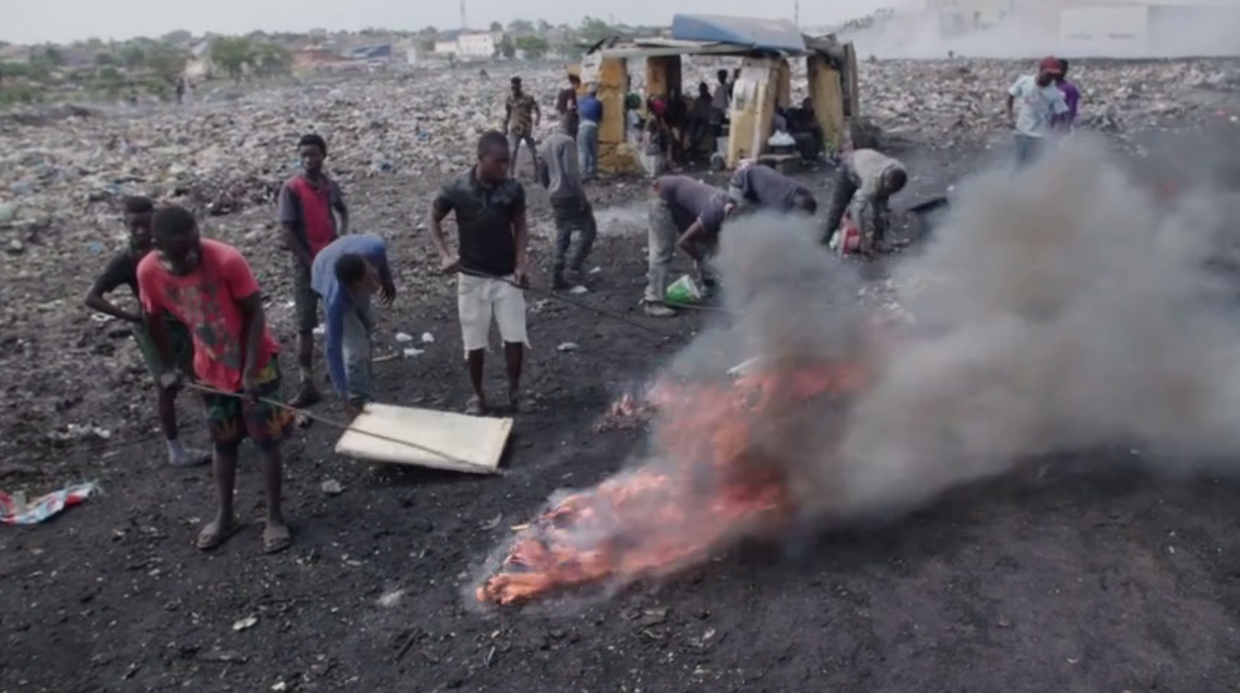Toxic dump: First-world electronics scrapyard in Ghana puts THOUSANDS at risk of cancer
Ghana has become one of the world's largest dumping grounds for electronic waste, creating a deadly industry that has put thousands at risk. RT's Ruptly video agency talked to people living in the epicenter of the catastrophe.
The electronics scrapyard near Ghana's capital, Accra, has left the surrounding region contaminated with hazardous toxins that have polluted the environment and created serious health problems for residents. According to one estimate, around 200,000 tons of the globe's discarded electronics find their way to one slum in Accra – the equivalent weight of more than one thousand blue whales.
The enormous dump is a primary source of income for many laborers, who pick through mountains of discarded electronics and melt them down for metals such as iron and brass. The extraction process is highly dangerous, releasing toxins into the air that have been linked to a host of serious environmental and health problems, including chronic pain, stillbirths, widespread pollution, and damage to the food chain.
Workers explained to Ruptly that they suffer from a range of ailments, noting that smoke from the fires used to burn the electronics causes chest pains – as well as debilitating headaches.
A study conducted by environmental network groups, IPEN and the Basel Action Network, found that long-term exposure to the hazardous fumes could lead to serious health problems, including cancer or harm to the immune and neurological systems. Jindrich Petrlik, a co-author of the environmental study, told Ruptly that there is no sign that the situation is improving.
The scrapyard growth and the amount of the e-waste... is increasing year-to-year; so, if nothing will be done, the problem will only be bigger and a larger population can be affected by the overall contamination of the site and its surroundings

The researchers also discovered that the deadly toxins have already entered the food chain. Chickens that forage near the highly contaminated soil around the massive dump have absorbed the waste into their systems – exposing humans who eat them, or their eggs, to serious health risks. The pollutants have also been detected in breast milk, meaning that the toxins are being passed on to the workers' children.
Also on rt.com ‘Conveyor belt of trash’: Arctic Ocean is ‘dead end’ for West’s plastic pollution, study saysFacing environmental and health problems that could easily span generations, locals told Ruptly that they are desperate for a solution. Unfortunately, there is no sign that the massive dump is going anywhere.
Like this story? Share it with a friend!















